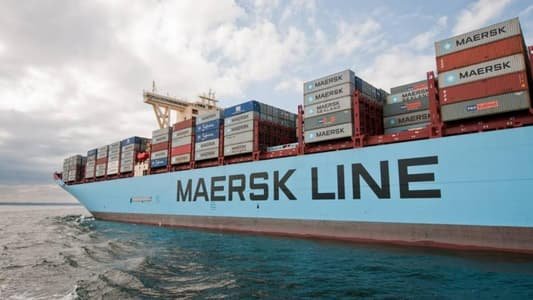COPENHAGEN: Maersk claimed explosions nearby led two ships operated by its US subsidiary and carrying US military supplies to turn around as they transited the Bab al-Mandab Strait off Yemen, accompanied by the US Navy.
“While en route, both ships reported seeing explosions close by, and the US Navy accompaniment also intercepted multiple projectiles,” Maersk said in a statement, adding that Red Sea transits by the US subsidiary’s boats will be suspended.
According to a representative for Yemen’s Houthi military forces, they fired ballistic missiles at four US warships that were defending two US commercial boats.
Maersk Line, Limited (MLL), the company’s US division, operates both commercial vessels, which transport cargo for the Department of Defense, Department of State, USAID, and other US government organizations.
Both are engaged in the US government’s Maritime Security Program (MSP) and Voluntary Intermodal Sealift Agreement (VISA), therefore they were escorted across the strait by US Navy boats, according to Maersk.
The US Defense Department runs MSP and VISA programs to move forces, supplies, and equipment during wartime or national emergencies.
The vessels and crew were unharmed, and the US Navy was escorting them back to the Gulf of Aden, according to Maersk. Bab al-Mandab is the Red Sea outlet that connects Yemen on the Arabian Peninsula with Djibouti and Eritrea on the African coast.
“Several of our ballistic missiles struck their targets despite warships’ attempts to intercept them,” the statement went on to say.
A US official stated that no ships were hit. “No US warships or commercial vessels were struck by Houthi missiles today,” said the official, who spoke on the condition of anonymity.
On Wednesday, Houthi troops fired three anti-ship ballistic missiles at the US-flagged cargo ship Maersk Detroit as it transited the Gulf of Aden, the US Central Command stated separately.
According to the statement, there have been no reports of injuries or damage to the ship.
On January 5, Maersk said that it would redirect its container vessels away from the Red Sea for the foreseeable future. Until Wednesday, MLL ships were the exception.
“Following the escalation of risk, MLL is suspending transits in the region until further notice,” according to a statement issued on Wednesday.
Seafarers are still in the firing line, and they have signed agreements to receive double pay when approaching high-risk zones.
“There’s a feeling of vulnerability,” said Stephen Cotton, General Secretary of the International Transport Workers’ Federation, the major seafarers’ union, to Reuters.
“The feedback from the (ship) captains is certainly on the container trades, they are much happier to go around the Cape.”





















